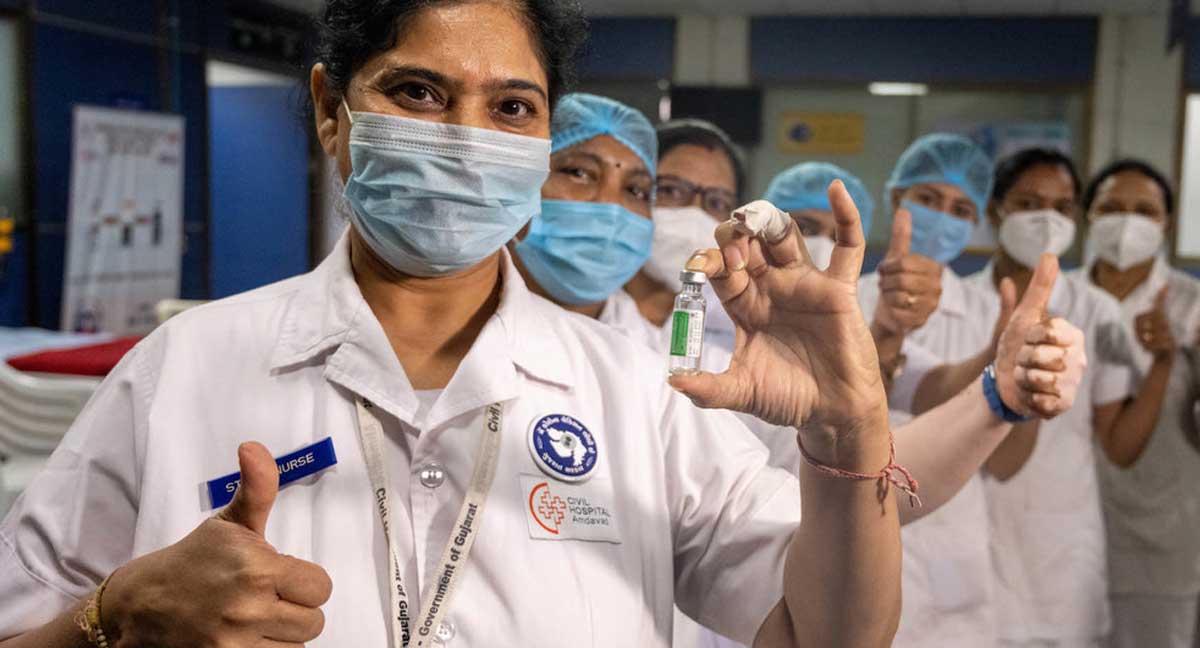Since its outbreak, the COVID-19 pandemic has led to unprecedented devastation to every nook and corner of the world. Not being just a cataclysmic health crisis, the pandemic is subtly but substantially reshaping social norms, economic systems, diplomacy way-outs, as well as global leadership and rivalry. As of now, experts believe that this deadly virus is not going to completely disappear overnight rather will remain as a recurring event like the normal flu virus. However, acquiring herd immunity which insists on mass inoculation is the most acceptable solution to combat the worsening situation.
The world is becoming unable to meet the demands of the massive number of vaccines as only a handful of wealthy nations are producing them. In the wake of the current condition, every country, either rich or poor has its own game to play, rich ones for achieving so-called ‘vaccine nationalism’ and the poor ones for maintaining proper channel to procure them. As if conquering the pandemic bears testimony to not only a country’s economy and resources but also its strategy and diplomatic prudence.
By now, it is evident that Coronavirus traits are very complex as unpredictable mutations of it can jump back and forth across the globe. Today’s successful COVID-19 players might be a victim of tomorrow’s worst-hit outbreaks. For instance, the overconfidence emanating from India’s temporary triumph over vaccine manufacture caused sufferings for more than 90 countries. It is understandable why India’s worsening situation led to the failure of delivering 30 million vaccine doses as per a deal with Bangladesh. However, it was unfair not to deliver even a single dose after the sudden halt on vaccine export, for which Bangladesh has paid in advance.
Due to some unavoidable factors, for Bangladesh, Serum was the only feasible and proximate option for vaccines. Firstly, Bangladesh continued consistent efforts to keep all the alternate options simultaneously within the reach. Some of the vaccines like Pfizer and Moderna require extremely cold refrigeration which in terms of both storage capacity and commercial viability is untenable. WHO/GAVI backed initiative COVAX Facility has been proved inadequate to respond to the demand worldwide equally. Secondly, due to long term and consistent G2G liaison between Sheikh Hasina and the Modi Government, Bangladesh ranked the Indian source at the initial ladder. But it didn’t mean Bangladesh subsequently closed other avenues for future exigency. Thirdly, India’s initially successful ‘vaccine diplomacy’ was so overwhelming that it seemed India was just a step behind from becoming a ‘vaccine hegemony’ worldwide.
Over the sudden upside-down flip of India, Bangladesh had to make desperate diplomatic efforts to procure vaccines for which China and Russia nodded positively. Bangladesh inked a non-disclosure deal of 15 million Sinopharm doses with China. Also, Bangladesh received two consignments of 1.1 million of Chinese Sinopharm doses as gift. Up until now, Bangladesh is hopeful of joining to the China-led initiative of vaccine storage facility and collaboration with Russia to produce Sputnik V locally.
In such a pandemic situation when co-operation is urgent rather than competition, geostrategic gambit should not predominate in the South Asian region which is home to around 25% of the global population. As for Bangladesh, being densely populated with a population of more than 170 million, it is highly vulnerable to the risk of COVID-19 expansion and mutation due to acute intra and inter-regional people to people contact, if this particular region remains less inoculated. Currently, Bangladesh only needs 1.6 million AstraZeneca doses to continue the inoculation program that kicked off on February 7, 2021. Also, a burgeoning economy like Bangladesh, can afford to purchase sufficient vaccine doses as well as manufacture them locally. Not only that, Bangladesh should be called for particular attention for a full-fledged vaccine production scheme, as COVID-19 vaccines are considered as ‘global public goods.’
Despite not having a remarkable health policy, so far, Bangladesh has responded much better compared to other countries in South Asia regarding COVID-19 management. However, the condition might flip over uncanny circumstances anytime soon. Therefore, any vaccine procurement initiative should look through the prism of exigency, not preference for their allies, as downpour of misery on one corner is a failure to the entire globe.


